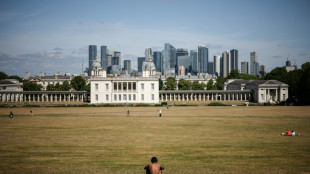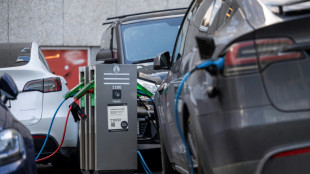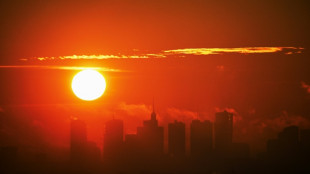
Monster Hurricane Melissa makes landfall in Jamaica

Ferocious winds and torrential rain tore into Jamaica Tuesday as Hurricane Melissa made landfall, the worst storm ever to strike the island nation and one of the most powerful hurricanes on record.
The extremely violent Category 5 system was still crawling across the Caribbean, promising catastrophic floods and life-threatening conditions as maximum sustained winds reached a staggering 185 miles per hour (295 kilometers per hour).
"This is an extremely dangerous and life-threatening situation!" warned the US National Hurricane Center, urging residents to stay sheltered and as far from windows as possible, including during the brief calm offered by the storm's eye.
Melissa's sustained wind speed was even more potent than most of recent history's big storms, including 2005's Katrina, which ravaged the US city of New Orleans.
"For Jamaica it will be the storm of the century so far," said Anne-Claire Fontan of the World Meteorological Organization.
Seven deaths -- three in Jamaica, three in Haiti and one in the Dominican Republic -- have already been blamed on the deteriorating conditions, but officials were concerned that many people were ignoring pleas to get to safety.
"Jamaica this is not the time to be brave," local government minister Desmond McKenzie told a briefing.
He lamented that many of the country's approximately 880 shelters were still in large part empty.
Surges in seawater combined with rainfall -- which will likely be measured in feet, not inches -- could trigger deadly floods and landslides.
"Keep Safe Jamaica," posted Olympian sprinter Usain Bolt, one of Jamaica's most famous figures, on X.
Ishack Wilmot, who was hunkered down with family in Kingston, told AFP they were safe and dry for now but had lost electricity and water overnight.
"The winds are up and gusting," he said. "Even though we are away from the eye, it's still really intense and loud."
- Lumbering giant -
The Jamaican Red Cross, which was distributing drinking water and hygiene kits ahead of infrastructure disruptions, said Melissa's "slow nature" made the anxiety worse.
The hurricane had quickened slightly but had been lumbering along at a human walking pace, meaning there it could linger over the tropical island renowned as a tourist destination.
Usually, "you anticipate that maybe within four hours it would be gone... but Melissa is not looking like that," Red Cross spokesperson Esther Pinnock told AFP.
Melissa was set to strike nearby eastern end of Cuba late Tuesday after pummeling Jamaica.
The mammoth storm appeared set to wreak devastation on the scale of some of the worst hurricanes in recent memory like Katrina, Maria or Harvey.
Scientists say human-driven climate change has exacerbated massive storms and increased their frequency.
Meteorologist Kerry Emanuel said global warming was causing more storms to rapidly intensify as Melissa did, raising the potential for enormous rains.
"Water kills a lot more people than wind," he told AFP.
"Human-caused climate change is making all of the worst aspects of Hurricane Melissa even worse," said climate scientist Daniel Gilford.
O.Kwon--SG

 London
London

 Manchester
Manchester
 Glasgow
Glasgow
 Dublin
Dublin
 Belfast
Belfast
 Washington
Washington
 Denver
Denver
 Atlanta
Atlanta
 Dallas
Dallas
 Houston Texas
Houston Texas
 New Orleans
New Orleans
 El Paso
El Paso
 Phoenix
Phoenix
 Los Angeles
Los Angeles



